The 20th century saw two World Wars, the Great Depression, the Cold War, the atomic age, and the dawn of the Information Age.
In this chaos and unprecedented change the whole world had to go through, some men -–and women— still stood out.
These are some of the greatest leaders of the 20th century.
Mahatma Gandhi
Mahatma Gandhi took a stand of ahimsa (non-violence) and satyagraha (passive resistance), thus inspiring millions to fight injustice. In addition, he championed the cause of civil rights and freedom, leading India to independence from British rule.
He was born and named Mohandas Gandhi in Gujarat, India, in 1869, into an upper-class family. In his teenage years, he went to study Law in London and served as a young attorney in Natal, a South African British Colony, in 1869 at just 24 years old.
There he met discrimination against Indians, including their inability to vote. This was the beginning of Gandhi’s organized resistance.
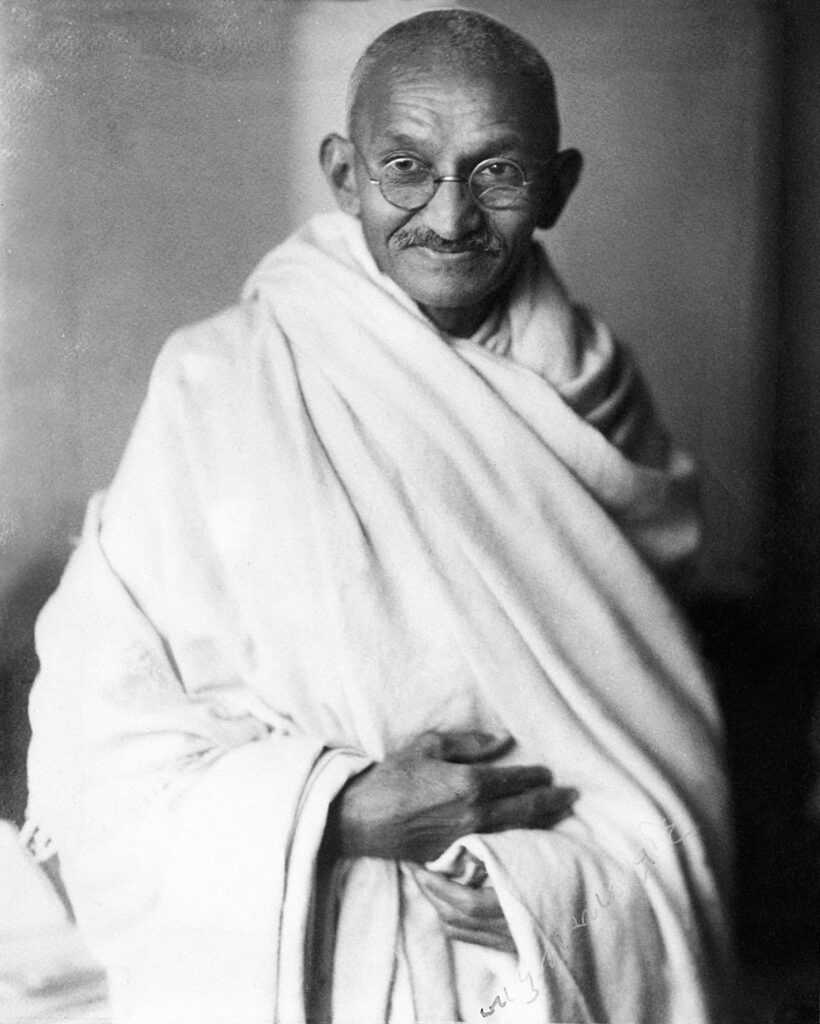
He joined the Indian National Congress Political party when he returned to India in 1915. At this point, he had already established his philosophy of Satyagraha and began to push for India’s Independence.
However, knowing fully well that the chances of success of an armed struggle against the greatest empire at the time were low, and based on his ideals, Gandhi opted for mass peaceful protests and boycotts of British goods.
His first target?
A British rule that gave their authorities the right to imprison suspected revolutionaries without trial. As you would expect, Britain fired back — and hard — imprisoning protesters in their thousands. But, Gandhi would not lead the Indians to back down.
Instead, this triggered a series of back-and-forth reactions from both sides that led to the imprisonment of Gandhi himself.
In the end, Britain voluntarily withdrew from India due to Gandhi’s “Quit India Movement” in August 1947. But sadly, Gandhi experienced Independence for just a few months as a Hindu extremist assassinated him on January 30, 1948.
Gandhi forever changed the pattern of social movements via his philosophy of non-violence and passive aggressiveness.
Martin Luther King Jr.
The advancement of civil rights through non-violence and civil disobedience is a strategy innovated by Mahatma Gandhi. But another great leader of the 20th century who executed it excellently was Martin Luther King Jr.
His philosophical views were launched in 1950 when he attended a lecture on non-violent resistance by Mahatma Gandhi. So, in 1954, when Rosa Parks was jailed for refusing to stand up for a white man on the bus in Montgomery, Martin was inspired and led the series of boycotts after her arrest.
Martin Luther King Jr was an African American who fought staunchly against racism in America. He was also a devout Christian and a Baptist Minister. As a result, reconciling his religious views with his avidity to fight racial injustice was difficult. But Gandhi’s approach came to the rescue, and the latter years of the mid-twentieth century would see one of the most visible spokespersons with untouchable oratory skills and leaders of civil rights wrestle racism in America.
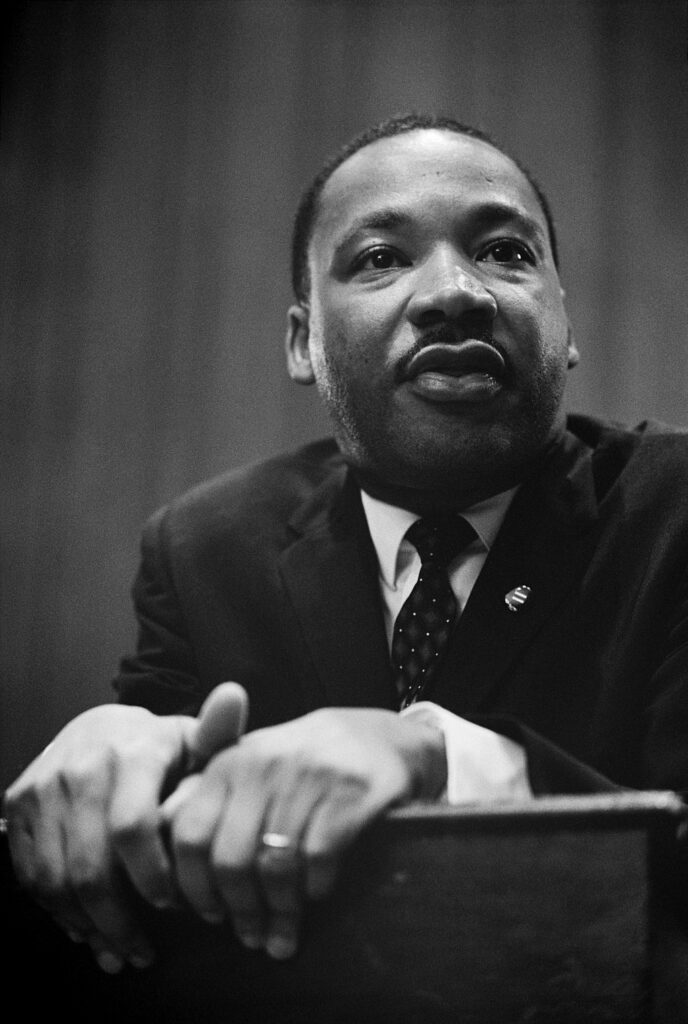
Desegregation, social injustice, voting rights, economic justice – you name it! Martin Luther King fought for equality and fairness in all these aspects. And although he was jailed multiple times, his efforts did not go without results and rewards, as he won the Nobel Peace Prize in 1964 before the Civil rights Act was passed in 1964 and 1965.
In the coming years, it would seem like he shared a similar fate with Gandhi as he was also murdered only two months after receiving multiple death threats.
He felt his death was imminent following the numerous threats and wanted to be remembered as one willing to give his life to save others. His legacy had far-reaching effects on the world, revolutionizing the civil rights movement to this day.
Nelson Mandela
Nelson Mandela symbolized hope, courage, and freedom for people worldwide. After fighting against South African apartheid, Mandela became the first elected black President in the country.
Throughout his lifetime, he tirelessly advocated for human rights and democracy, dedicating himself to the cause of liberation and equality.
Mandela had a commanding and authoritative figure primarily due to his legal training, organization skills, and self-discipline, amongst other admirable traits. All these things combined gave him the stature and bearing that appealed to the populace, which was how he got multitudes behind his movement and campaigns.
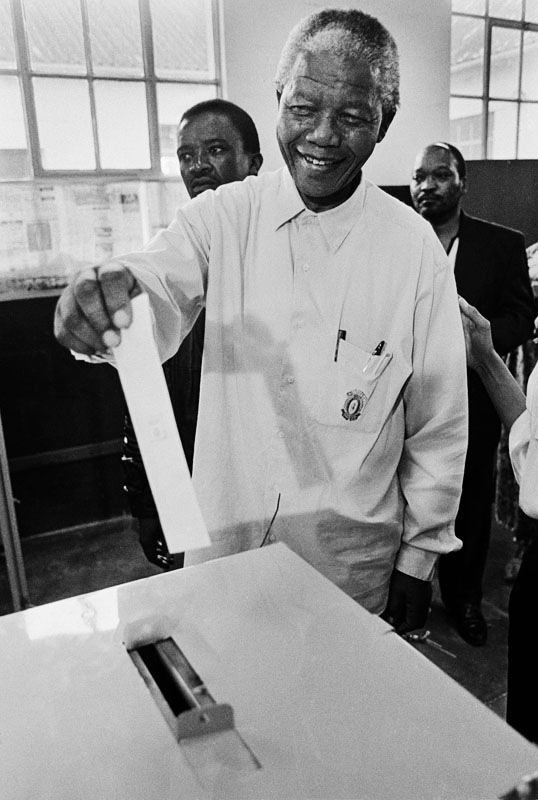
One of Mandela’s most significant accomplishments was his role in the struggle against apartheid, the system of racial segregation and discrimination enforced in South Africa from 1948 to 1994.
Mandela was a part of the African National Congress, the main opposition party to the apartheid government, and he spent much of his life working to end the system. He was arrested and imprisoned for his activism and became a symbol of the struggle for freedom and justice in South Africa.
Winston Churchill
Winston Churchill will forever be remembered as a great English leader who united the British people during the darkest days of World War II. Blessed with oratory skills and war strategy, he could predict the enemy’s moves and steer the spirits of the British troops and the people.
He was a graduate of the Royal Military College at Sandhurst in 1894. After graduation, he served multiple tours in Cuba, Egypt, Sudan, and South Africa
At age 25, Winston Churchill was already an elected member of parliament before serving as the First Lord of the Admiralty, Minister of Munitions, and Prime Minister in the following years.
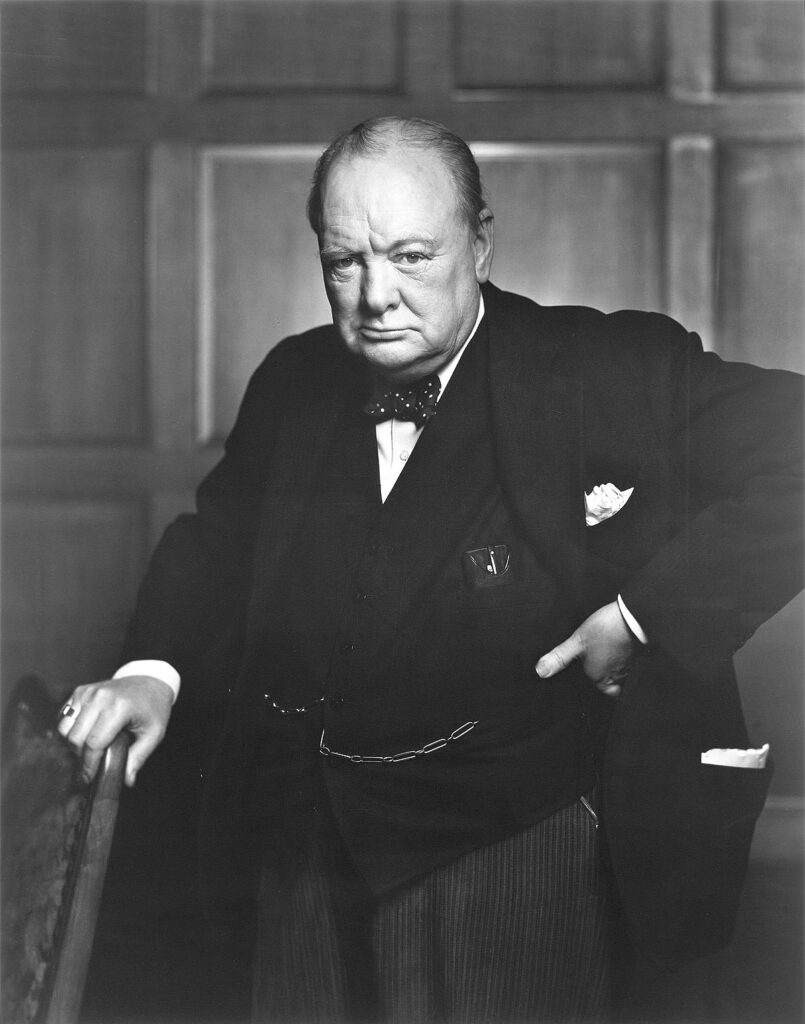
He had enthusiasm and a contagious zeal — anyone working with him would have to match his pace and energy. So, his premiership during World War II would not encourage a doomster attitude even in the face of adversity. He would not accommodate the idea of a reasonable resolve with Adolf Hitler: defeating him was the only option.
Another outstanding attribute of Winston Churchill was his tactical planning. The man had great foresight and acted swiftly according to his vision. For instance, he had doubts about communism in Russia and speculated a struggle between English-speaking nations and Russia as early as 1931. The emergence of the Cold War in 1947 confirmed his predictions.
Churchill also gave Great Britain a considerable headstart in World War I when he served as the First Lord of the Admiralty. He had a strategic approach to Britain’s Naval power that led the nation to have the most remarkable naval strength in the world at the time.
Moreover, he believed adequate preparation for war was the only way to preserve the nation’s wealth. So, Churchill adequately prepared the British fleet for war by first figuring out the likely wars that could break out and how they would best respond.
He was right! World War I broke out only four years later.
Winston Churchill will forever be etched in Britain’s history as a true leader who showed passion, intuition, and courage to guide his people to brighter days during the tumultuous period of the 20th century.
Franklin Delano Roosevelt
Franklin Delano Roosevelt, also known as FDR, was the President of the United States from 1933 to 1945, leading the country through some of its most significant challenges, including the Great Depression and World War II.
FDR was known for his ability to communicate with and inspire the American people. His fireside chats, in which he addressed the nation directly on the radio, were a novel and effective way for him to connect with Americans and explain complex issues.
He also rallied the American people with his optimism and his call to action, “We have nothing to fear but fear itself.”
FDR was able to take bold, decisive action in a time of crisis. When he took office in 1933, the United States was in the midst of the Great Depression, where at its height, 25% of the country was unemployed.
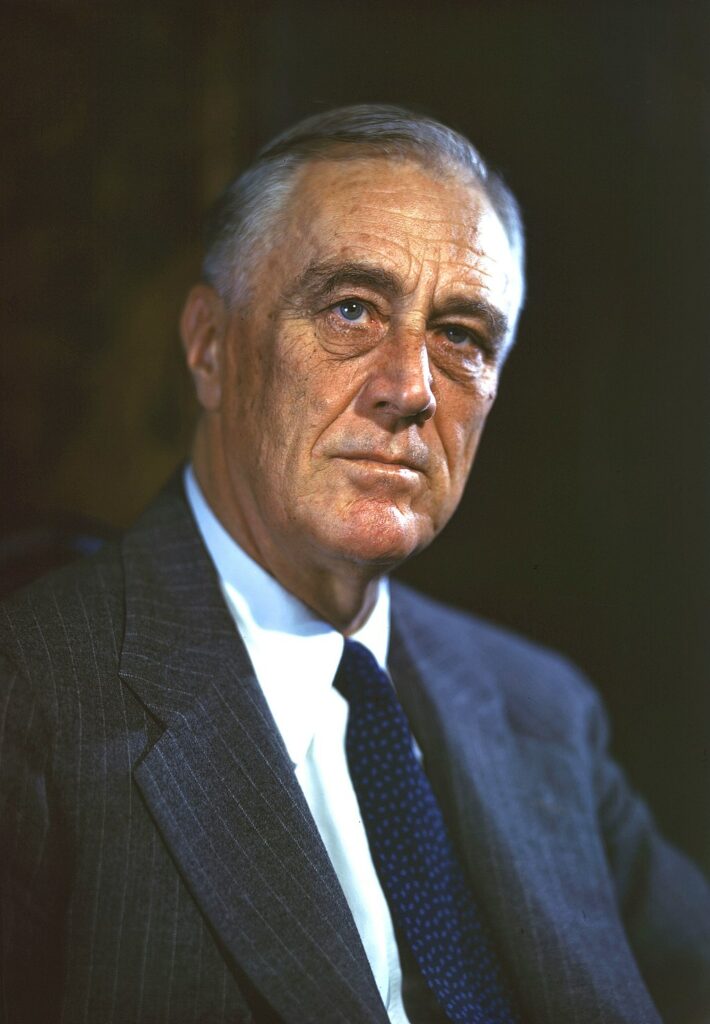
He implemented many programs as part of his New Deal aimed to stimulate the economy and provide relief to those in need.
These programs, such as the Civilian Conservation Corps and the Works Progress Administration, put people back to work and helped to revive the economy.
As if The Great Depression wasn’t bad enough, FDR steered the United States through World War II. When he took office in 1933, the United States was still recovering from World War I and was hesitant to get involved in another global conflict.
However, as the situation in Europe worsened, FDR took a strong stand against the Axis powers and eventually led the United States into the war after Japan attacked Pearl Harbor. He worked closely with other Allied leaders, such as Winston Churchill, to coordinate strategy and ultimately defeat the Axis powers.
FDR’s leadership during the Great Depression and World War II shaped the United States into the global superpower it is today.
Mustafa Kemal Ataturk
Mustafa Kemal Ataturk was the founder and first President of Turkey. He served as President from 1923 to 1938 and is remembered as the leader who modernized and secularized the country.
Before Ataturk’s presidency, Turkey was a largely traditional Muslim country with a strong influence from the Ottoman Empire.
Ataturk introduced reforms aiming to modernize and westernize the country, including introducing a new legal code based on European models, adopting the Latin alphabet, and promoting the use of the Turkish language.
Ataturk also worked to secularize the country, separating religion from the state and promoting the idea that religion was personal.
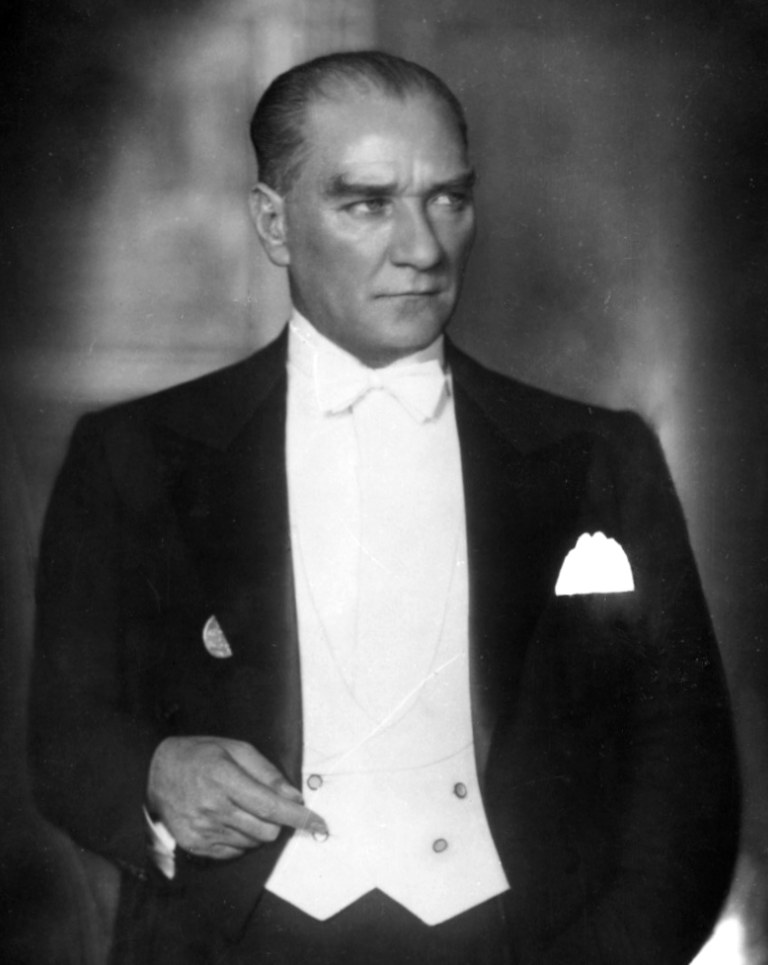
This was a significant shift in a country that had long been ruled by Islamic law and had a strong influence from the Ottoman Empire, which was an Islamic Caliphate.
Ataturk is also remembered for his efforts to promote women’s rights in Turkey. He gave women more equal rights, including the right to vote and stand for election, divorce, and education. These reforms helped to pave the way for more gender equality in Turkey.
In addition to these domestic reforms, Ataturk established diplomatic relations with other countries and played a key role in establishing the League of Nations, a precursor to the United Nations.
Overall, Ataturk’s leadership significantly impacted Turkey, modernizing and secularizing the country and promoting women’s rights. He is remembered as a transformative leader who helped to shape Turkey into the modern, secular democracy it is today.
Charles de Gaulle
Charles de Gaulle was a French politician and military leader who led free France during WW2 and served as the President of France from 1959 to 1969.
De Gaulle was pivotal in the resistance against Nazi Germany during World War II. De Gaulle was one of the few high-ranking officials in the French government to openly oppose the Vichy regime, which had collaborated with the Nazis.
He escaped to Britain and established the Free French movement, which sought to continue the fight against the Nazis and reclaim France’s sovereignty.
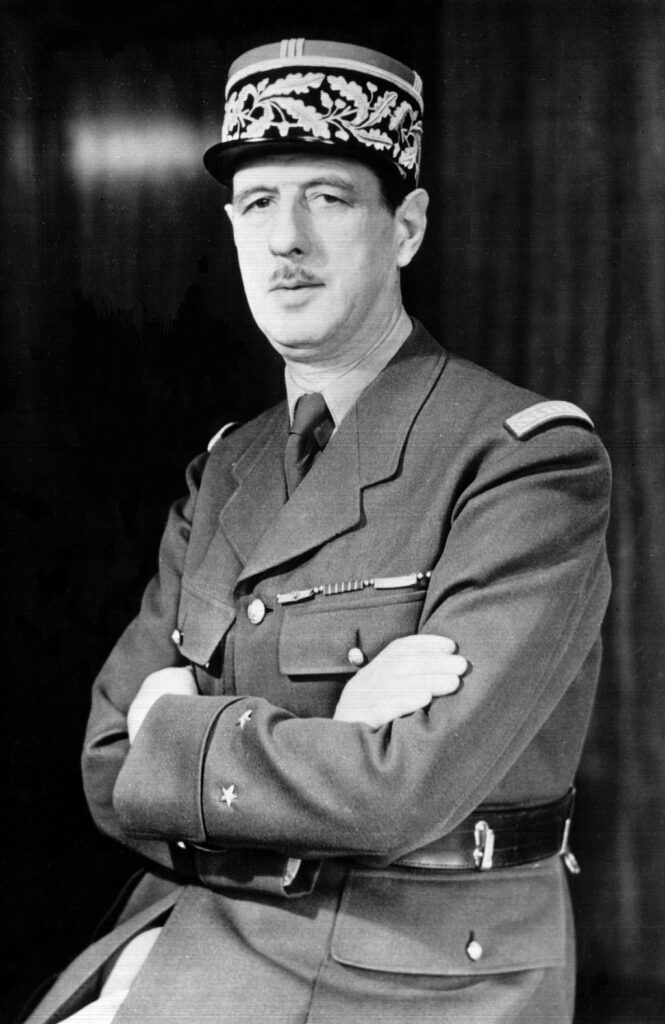
De Gaulle’s leadership and determination during this time earned him the respect and admiration of the French, and he became a symbol of resistance.
After the war, de Gaulle helped rebuild and modernize France by implementing economic and social reforms, a new constitution, and a modernized economy. He also worked to strengthen France’s position on the world stage, promoting French culture and language and establishing France as a nuclear power.
De Gaulle oversaw the decolonization of France’s imperial empire, releasing countries like Algeria and Vietnam after years of conflict.
Clement Attlee
Winston Churchill may be the most famous British wartime Prime Minister, but Clement Attlee was the one who oversaw the end of WW2.
From 1945 to 1951, Clement Attlee led Britain through the tumultuous postwar years, overseeing the rebuilding and reconstruction of Britain, which had been heavily damaged during the war.
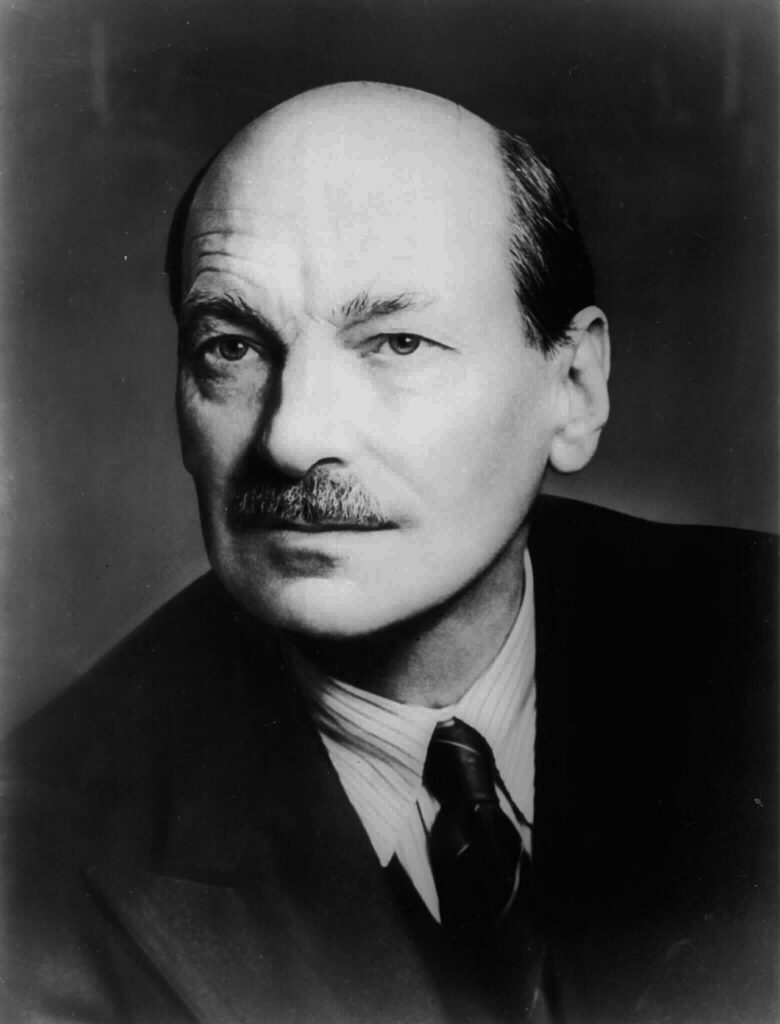
Attlee implemented many major social and economic reforms in Britain. He oversaw the creation of the National Health Service, which provided free healthcare to all British citizens, and implemented many other reforms aimed at improving the lives of ordinary people, including the expansion of social security and the construction of new public housing.
On the foreign front, Attlee played a pivotal role in decolonizing the British Empire, giving up their claim on the majority of their overseas holdings.
Deng Xiaoping
Deng Xiaoping was a Chinese political leader who was head of the People’s Republic of China from 1978 to 1992. He is remembered as a key figure in Chinese history and one of the most influential leaders of the 20th century.
China’s booming economy and influence on the global stage can be largely attributed to Deng’s economic reforms. These reforms included the establishment of special economic zones, which provided tax breaks and other incentives to foreign investors, and the promotion of private enterprise.
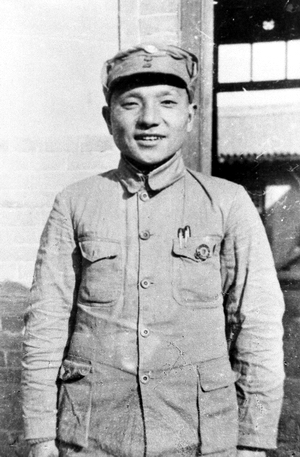
The Chinese economy’s productive capacity was unleashed, leading to rapid economic growth and millions of new jobs.
Deng strove to open China up to the rest of the world. He worked to build diplomatic relations with other countries, including the United States, and encouraged foreign investment in China. These efforts helped to integrate China into the global economy and make it a major player on the world stage.

